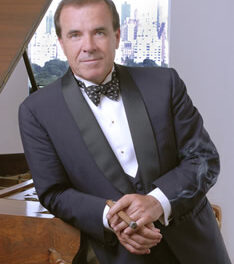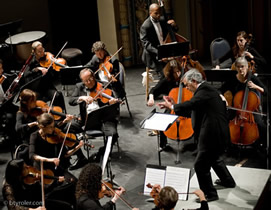We’ve reached that season when the arts calendar fills with a cluster of productions that reprise Dickens’ Christmas Carol, Handel’s Messiah, and Tchaikovsky’s Nutcracker – a rather traditional season not noted for novelty or wild innovation. So it’s nice to survey the Yule schedule and find events that even gently push the envelope and attempt to trailblaze with new styles like cirque or soul, or entertain the possibility that, come December, we’re not completely averse to secular fare. Better yet, amid a thicket of Nutcracker and Christmas Carol variants, we could find Charlotte Symphony venturing beyond its customary Holiday Pops medleys to a “Soulful Christmas” or Charlotte Master Chorale taking a thematic approach with “Home.” Although I prefer the acoustics at CSO’s venue, Knight Theater, over First United Methodist Church, guest artist T. Oliver Reid tipped the balance for me in favor of Chorale’s “Home,” where he shared the pulpit with the choir, conducted by Kenney Potter, and pianist Philip Biedenbender.
Very likely, I’d seen Reid long before he took over the role of Hermes in the Broadway production of Hadestown for nearly three months in 2022, since he figured in productions of Thoroughly Modern Millie, La Cage aux Folles, and After Midnight that I had witnessed over the years (in 2002, 2004, and 2014) during my pilgrimages to the Great White Way. A native of Metrolina who appeared in Shenandoah at Little Theatre of Gastonia long, long ago, Reid may have traveled far to participate in this holiday gig, but he could certainly identify with the homespun theme. In his bag of goodies, Reid brought a couple of songs from The Wiz, including his opener, “Soon as I Get Home,” and his finale, “Home.” With a silken voice that stretched lower and more richly beyond my expectations, Reid hit home runs with both these songs that are usually belted by Dorothy.
Potter’s programming for “Christmas with the Charlotte Master Chorale: Home” consistently accommodated this kind of generous latitude. Of course, there were seasonal favorites tailored for the theme, including “I’ll Be Home for Christmas,” Mel Tormé’s “The Christmas Song,” and – presented as a Biedenbender instrumental – “Home for the Holidays.” Nobody onstage at First United displayed any liking for the Christmas songs I dread and loathe, so we were never assaulted with the annoying fun of “Jingle Bells” or the torturous tedium of “The Little Drummer Boy.” Nor were the unexpected readings from Reid overladen with saccharine or sentimentality. Sara Teasdale’s “A Winter Night” and Ella Wheeler Wilcox’s “The Year” were both somber and seasonal. Even the excerpt from the Dickens classic, “Ignorance and Want,” refrained from depicting a vapid, gleeful wonderland.
“Christmas Dreams,” “Be Born, O God,” “Lost in the Night,” “Prayer of the Children,” and “Music in My Mother’s House” were all new to me. Similarly, I doubt that composer Alan Menken figures prominently on many Spotify playlists for Christmas, but Potter, Biedenbender, and the Chorale dipped into his catalogue twice, for “God Bless Us Everyone” from his musical version of A Christmas Carol and – far more unexpected – “Someday” from The Hunchback of Notre Dame, written with Stephen Schwartz. For me, Schwartz actually upstaged his collaborator with his other selection, “Through Heaven’s Eyes” from The Prince of Egypt, since it sprinkled the program with the right amount of levity along with Jerry Herman’s “We Need a Little Christmas” from Mame. Musically, “Through Heaven’s Eyes” took us closer to Jerusalem than Rome, for the sound had unmistakable klezmer flavoring. “Simcha” from the same musical where Moses is the protagonist, might have had a little more Jewish flavor and the liberating spirit of Chanukah, but “Through Heaven’s Eyes” was the most extravagant entertainment of the evening – and the Master Chorale clearly delighted in backing Reid up with their syncopated, klezmer-kissed la-las.
After an a capella rendition of “The Christmas Song” by the Chorale – with Reid repeating the final bars – the program built to a simple and sublime climax as Biedenbender accompanied Reid in a fervid rendition of Adolphe Charles Adam’s glorious “O Holy Night.” I’d never known that the song had three stanzas in English, compared to just two in the original French lyric by Placide Cappeau that inspired Adam. We can thus forgive Celine Dion for only singing two, but for Reid to sing a second and a third stanza provided a wonderful surprise and a singular experience.












